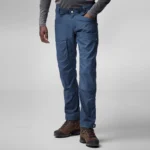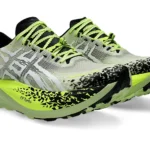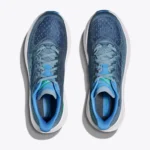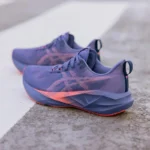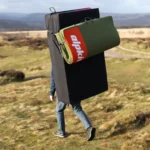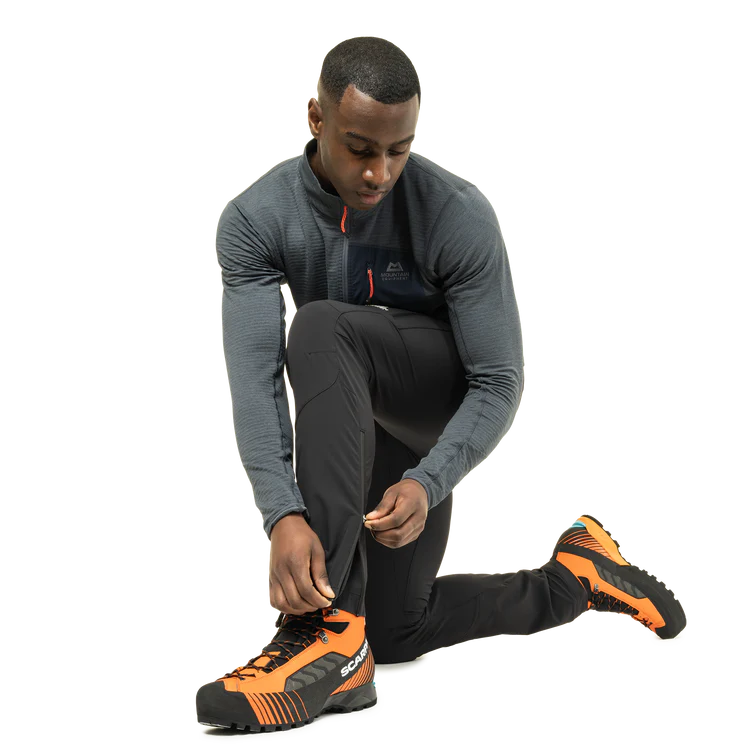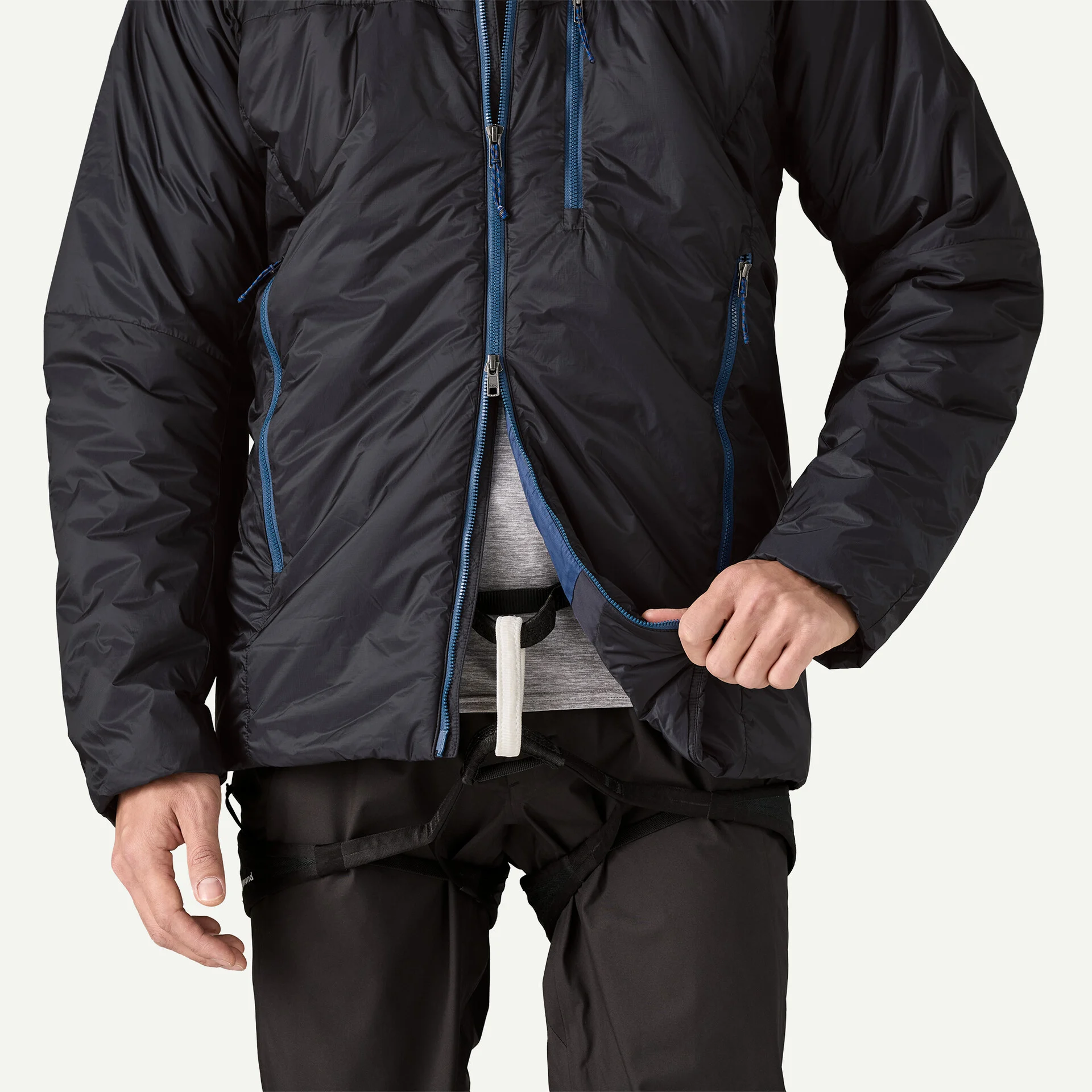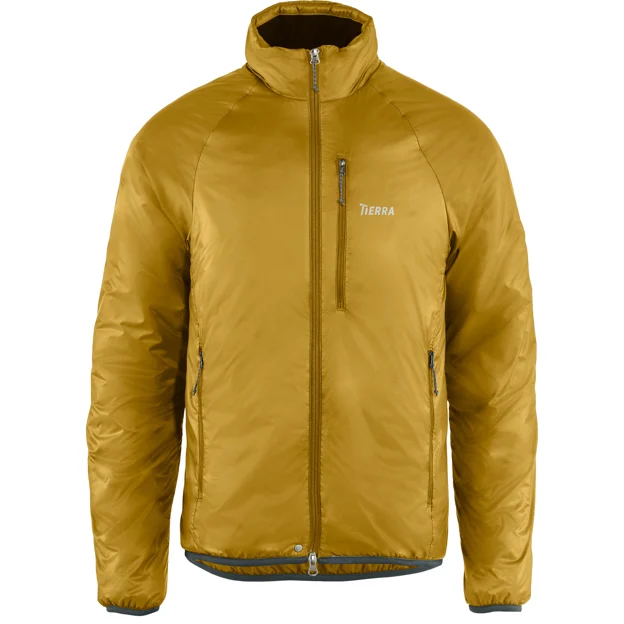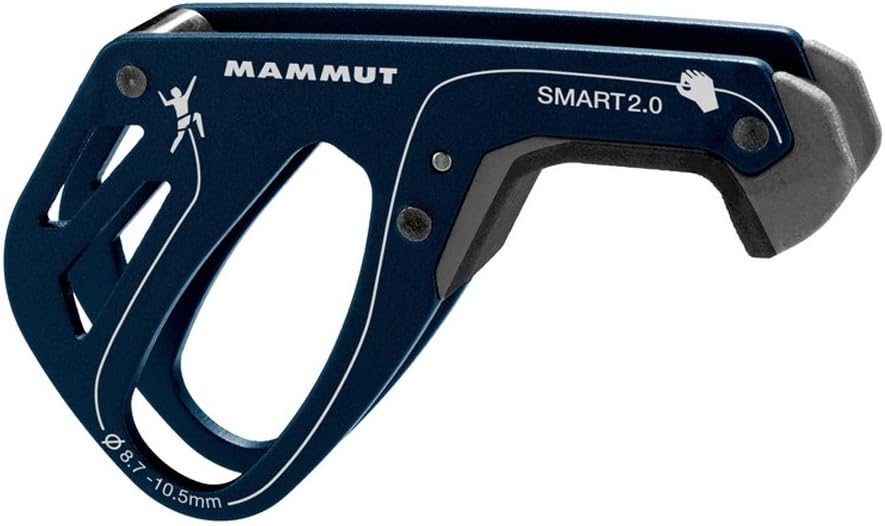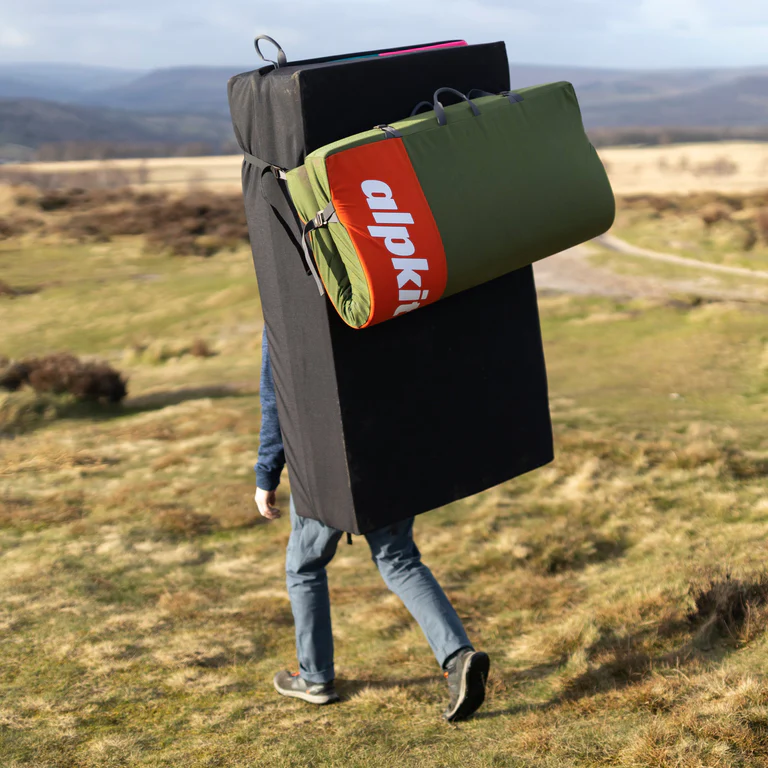
The Alpkit Phud Bouldering Mat is a compact, taco-style bouldering pad designed for climbers who want reliable protection without the premium price tag. Whether you’re circuiting gritstone classics, exploring new blocs in the woods, or adding a secondary pad to your setup, the Phud offers a practical balance of portability, coverage, and impact absorption. In this detailed review, we’ll explore its construction, usability, performance, and how it compares to other pads in the UK market.
Design and Construction
The Phud is Alpkit’s lightest full-size crash pad, measuring 100 x 100 x 8cm, which gives you a square metre of landing space. It uses a taco-style fold, meaning there’s no hinge—just a single piece of foam folded in half. This design eliminates dead spots and ensures a continuous landing surface, which is especially important for awkward landings or uneven terrain.
The foam is a dual-density combination of closed-cell and open-cell layers. The closed-cell layer on top disperses impact, while the open-cell layer underneath absorbs shock. This setup is typical of most crash pads, but Alpkit’s foam density is well tuned for moderate falls and lowball problems.
The outer shell is made from durable Cordura-style nylon, which resists abrasion and moisture. Reinforced corners and bar-tacked stitching add to the pad’s longevity, and the materials feel robust enough for regular use across UK crags.
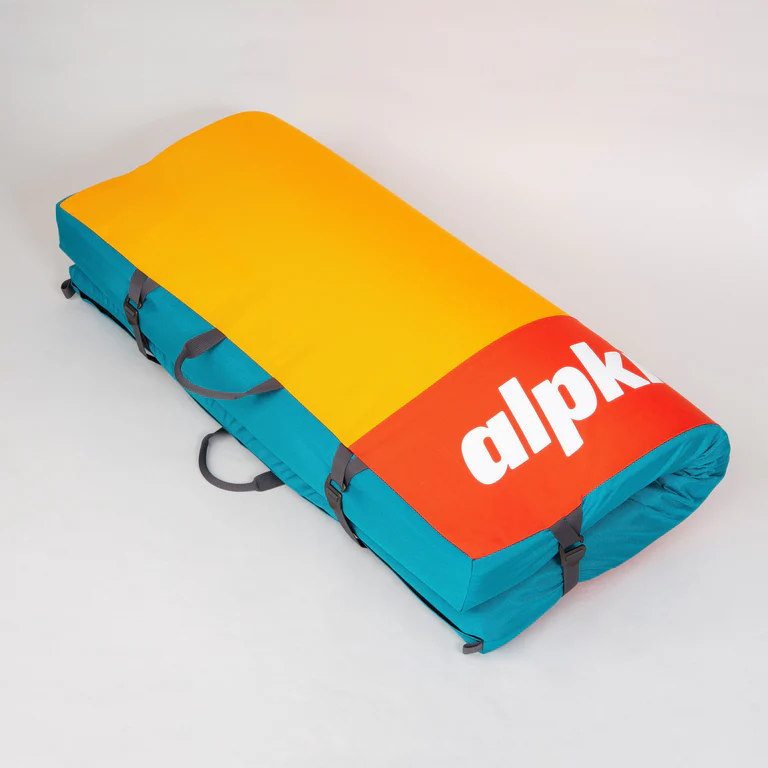
Carry System and Portability
The Phud features a simple carry system with a single removable shoulder strap, making it easy to sling over your back or attach to a larger pad for walk-ins. There are no backpack-style straps or waist belts, which keeps weight and bulk down but may limit comfort on longer approaches.
At just under 4kg, the Alpkit Phud Bouldering Mat is light enough to carry alongside other gear, and its compact size makes it ideal for climbers with limited car space or storage. It fits easily into most boots and hatchbacks, and users report success fitting it into small cars like the Peugeot 106 or Daewoo Kalos.
The taco fold allows you to stuff shoes, chalk bags, or layers inside the pad during transport, adding a bit of modularity to your setup.
Performance and Impact Protection
For its size and price, the Alpkit Phud Bouldering Mat offers solid impact protection. The 8cm thickness is slightly above average for pads in this category, and the foam quality is surprisingly good for a budget option. It’s best suited for:
- Low to mid-height problems
- Sit starts and traverses
- Supplementing larger pads on highballs
While it’s not designed for big falls or highball landings, it performs well in typical UK bouldering scenarios. The foam retains its structure over time, and users report consistent performance even after a year of regular use.
The square shape makes it easy to position and stack with other pads, and the lack of a hinge means fewer surprises when landing off-centre.
Durability and Longevity
Durability is one of the Phud’s strengths. The outer fabric resists abrasion from gritstone, limestone, and granite, and the stitching holds up well under repeated folding and transport. The foam doesn’t compress prematurely, and the pad maintains its shape even after months of use.
One user noted that their Phud remained in excellent condition after a year of use by a notoriously gear-abusing teenager—a strong endorsement for its resilience.
While it lacks the premium finish of higher-end pads, the Phud delivers where it counts: reliable protection and long-term usability.
Use Cases and Versatility
The Phud is ideal for:
- Beginner boulderers looking for an affordable first pad
- Urban climbers with limited storage or transport options
- Experienced climbers adding a secondary pad to their setup
- Evening circuits or short sessions where a lightweight pad is preferred
Its compact size and taco fold make it easy to carry, stash, and deploy quickly. It’s not a one-pad solution for highball projects, but it’s a versatile tool for most everyday bouldering needs.
Comparisons and Alternatives
Here’s how the Phud stacks up against other popular pads:
| Pad Model | Size (cm) | Thickness | Weight | Price Range | Key Features |
|---|---|---|---|---|---|
| Alpkit Phud | 100 x 100 x 8 | 8cm | ~4kg | £60–£80 | Taco fold, lightweight, budget-friendly |
| Red Chili Crash Pad | 122 x 92 x 10 | 10cm | ~5kg | £90–£120 | Thicker foam, backpack straps |
| Moon Warrior Pad | 100 x 120 x 9 | 9cm | ~6kg | £130–£160 | Hinged fold, premium finish |
| Metolius Session II | 91 x 122 x 10 | 10cm | ~5.5kg | £140–£170 | Flap closure, backpack carry |
| Flashed Temple Pad | 137 x 92 x 8 | 8cm | ~6kg | £140–£180 | Wide coverage, taco fold |
The Phud offers excellent value for money, especially when compared to pads that cost twice as much but offer only marginal improvements in foam or finish.
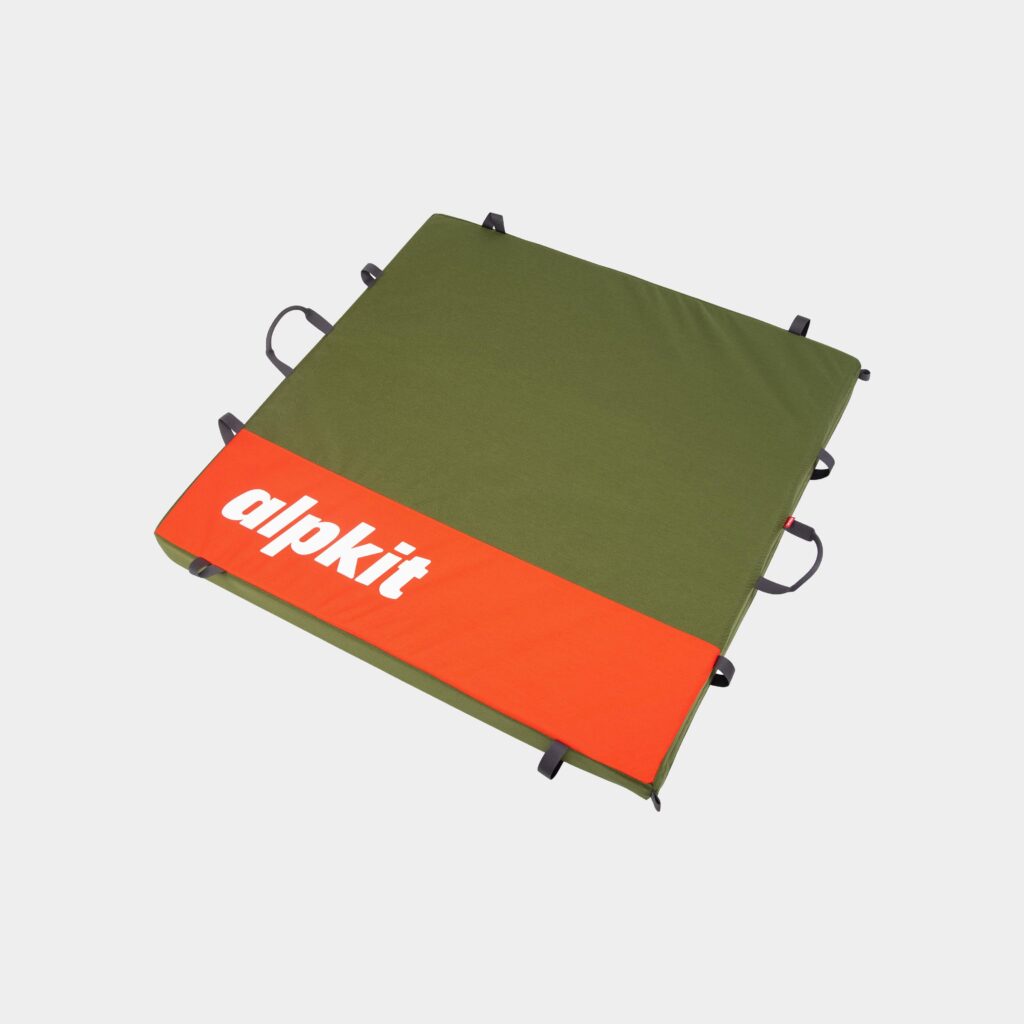
Pros and Cons Summary
Pros:
- Affordable price point
- Lightweight and compact
- Durable materials and stitching
- Taco fold for uninterrupted landing surface
- Ideal for low to mid-height problems
Cons:
- No backpack-style carry system
- Limited coverage for highball landings
- No closure system or gear straps
- Foam may compress faster under heavy use
Final Verdict
The Alpkit Phud is a well-designed, budget-friendly crash pad that delivers reliable performance for everyday bouldering. Its compact size, taco-style fold, and durable construction make it a smart choice for climbers who want a lightweight pad without compromising on safety.
While it’s not built for highball projects or long walk-ins, it excels as a primary pad for beginners or a secondary pad for experienced climbers. If you’re looking for a no-frills, dependable mat that won’t break the bank, the Phud is a solid investment.

